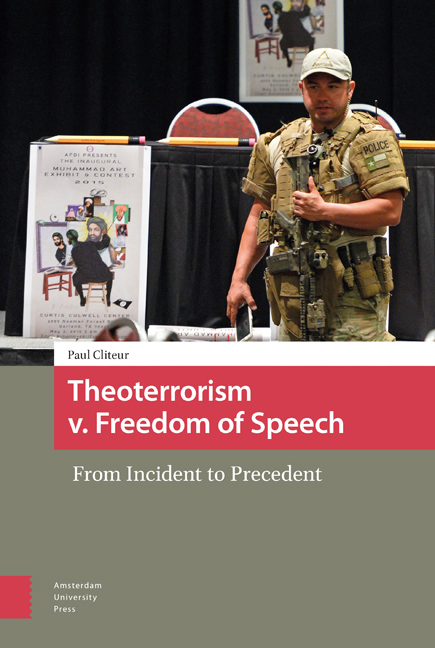Book contents
7 - Modern hostage taking
Published online by Cambridge University Press: 21 November 2020
Summary
The anti-Americanism of the radical Islamists has little to do with the anti-imperialism of Mark Twain. In fact, the anti-Americanism of the Islamist is not about the United States, but reflects their contempt for the liberal social democratic society we have built and its emphasis on liberty and freedom of the individual itself.
Tarek FatahTake no part in the unfruitful works of darkness, but instead expose them.
Ephesians 5:11 (ESV)The previous chapters will by some readers be experienced as “pessimistic”. That is partly true, although the worst is still to come. Nevertheless, there is light at the end of the tunnel because once we have a clear diagnosis of the evils that beset us, we are in a position to think about solutions. That makes all pessimistic analyses hopeful too. Once we have an insight into our situation, we are able to cope with it. The previous chapters have presented abundant material that shows that our politicians have little idea about the severity of the crisis they face.
Politicians and mainstream doctrine emphasize that the number of victims of terrorist attacks is relatively small, but they forget that the cultural impact of these attacks on liberal democratic culture is huge.
This final chapter has one definite goal: to make clear that the predicament of Salman Rushdie, Kurt Westergaard, and any other writer, cartoonist, or show master is not only their predicament but also our situation. This is also spelled out by Bassam Tibi in his introduction to this book. Tibi asserts that the accusation of Islamophobia can be interpreted as an instrument of hostage taking.
As will have become clear after the previous chapters in this book, my claim is that states, confronted with the challenge of theoterrorism, have a very limited and even contorted idea of the forces they have to deal with. Naturally, they fight “terrorism”, but they have no idea what its root causes are, i.e. religious radicalism. Most of the analysts and politicians even vehemently deny religion or ideology as a relevant factor in contemporary theoterrorism.
One of the most puzzling aspects of the Rushdie Affair, and contemporary religious terrorism in general which targets novelists, show masters, artists, cartoonists, politicians, and ordinary citizens of Western and non-Western states, is that scholars, politicians, public intellectuals, and the public at large have so much difficulty in interpreting the situation.
- Type
- Chapter
- Information
- Theoterrorism v. Freedom of SpeechFrom Incident to Precedent, pp. 199 - 222Publisher: Amsterdam University PressPrint publication year: 2019



